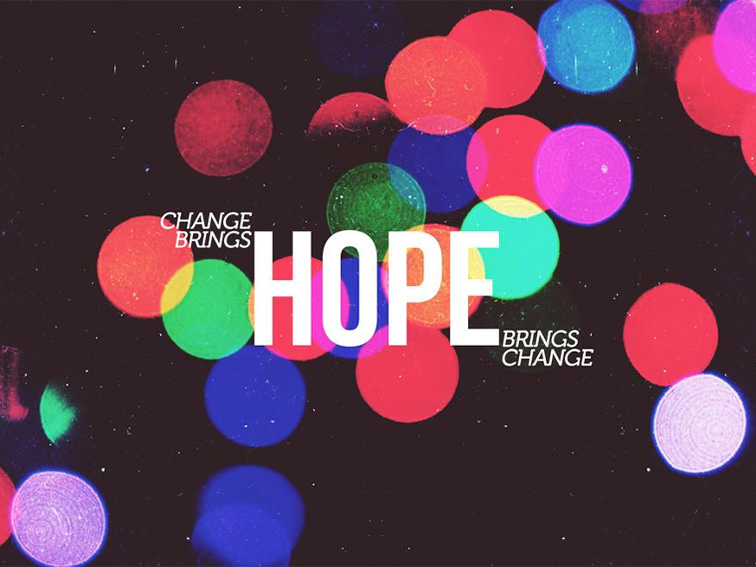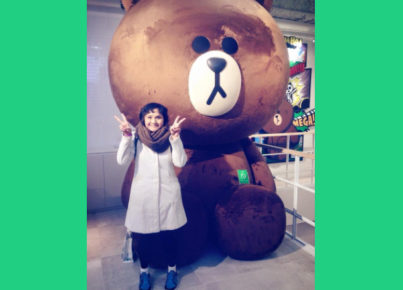“Change”
Pavat Pichetsin
Student
Thailand
Change, change is exciting, risky, and inevitable. Change happens at every stage of our lives, and this is the case, especially in 2020.
Last year, I was fortunate enough to receive the opportunity to attend TYCA Volume 5. As expected, change was also there: the experience had changed my views on the people of my neighboring countries, the concept of sustainable development and how viable it is, and society in general. I have made new friends, broadened my perspectives, and most importantly, reignited my passion for learning after being inspired by all of the amazing senpais of TYCA Volume 5.
Going from 2019 to 2020, even more change has happened. The coronavirus pandemic shifted the status quo, causing social, economic, and political impacts all over the world. The most relevant impact of all, though, is probably the quarantine: the inability to travel and do social activities mean that people now have to reschedule their entire day, me included. Of course, I was tempted to rest and play all day long, but my lingering urge to learn from TYCA pushed me to start seeking knowledge instead, it allowed me to discover my passions in Mathematics and especially Economics, and allowed me to push myself academically to new heights. Overall, the quarantine had given me the chance to pursue my academic interests and taught me how to manage my time efficiently.
Looking broadly into economies and corporations, COVID-19 will change both Thailand and the world completely. While the new normal pushed organisations into unfamiliar territories, the pandemic revealed many cost efficient ways of conducting business activities, such as remote conferencing. I expect that the post covid world will have less business travel, more modular and personalised work modes, and increased usage of e-commerce.
Of course, these changes have consequences, too. The changes stated above may cause macroeconomic problems such as unemployment, and damages to local businesses who can not cope with covid-19 induced digital transformations that businesses all over the world are experiencing right now. Hence, welfare policies, well-planned stimulus packages, and improvements in education are needed in countries such as Thailand to help them cope with these changes sustainably. Moreover, international bodies, such as ASEAN, have the power to cooperate under frameworks such as ASCC, AEC, and APSC, allowing them to solve societal problems that stemmed from the pandemic. Hence, these international bodies play an important role in helping the world to cope with these changes, as they regulate regions and countries.
status quo will have to change to create a better global society. The youths of this world also have the power to enact positive change in societies post-covid19. In demographic analysis, youths -called the “young dependents”- are arguably the most important population sector. They will grow up to become the economically active citizens who will directly contribute to the economy and the governance of their societies. In recent years, we have seen an increasing interest in promoting progressive change in youths. Many events, such as TYCA and MUN, have allowed youths to speak their minds and work together to actually talk about important global issues. I believe that we can scale these events upwards, and create platforms for youths to work together and create real change. However, there are more youths with great ideas than there are platforms for them to speak, so we must create more opportunities for them first, then we can scale them upwards so that their ideas can be realized.
Other changes include new challenges to achieving SDGs. I am sure that fellow TYCA participants will be very familiar with SDGs. We have learned that many organizations around the world, including the UN, have been pursuing these goals for the betterment of the world, however, the pandemic has been stunting their efforts. In order to combat this, global cooperation must be achieved through innovative solutions. Due to COVID-19, many conservative efforts have been in vain, as plastic masks increase the carbon footprints of people all over the world, hence increasing the need for solutions even further. Organizations should exploit technology to their advantage: remote communication, media, and online petition/survey platforms can be used to work around physical restrictions and work closely with the public. In conclusion, the COVID-19 pandemic has changed the world in all aspects, both societal and economic. In order to cope with these changes, people, including the youth, and the public/private sector should work together, engaging in proactive activities and using digital platforms to transform their organisations. If done correctly, the post-covid world may be one where society has learned their lessons from the pandemic and adapted them to enrich itself, solving problems on all scales and preserving nature even better through innovations realized after coping with the pandemic. As we can see, while change is frightening and inevitable, we can use change to better ourselves by coping proactively.
変化、変化は刺激的であり、リスクがあり、そして、避けられないものです。変化は私たちの人生のあらゆる段階で起こりますが、特に2020年は変化の年でした。
2019年、私は幸運にも第五回・TYCAに参加する機会に恵まれました。予想通り、そこにも変化がありました:TYCAでの経験は、近隣諸国の人々、持続可能な開発の概念とその実現可能性、そして社会全般に対する私の見方を変えてくれました。私は新しい友人を作り、視野を広げ、そして何よりも第五回・TYCAで出会った素晴らしい先輩たちに刺激を受け、学ぶことへの情熱を再燃させました。
2019年から2020年に向けて、さらに多くの変化が起こりました。コロナウイルスの大流行は現状を変え、世界中で社会的、経済的、政治的な影響をもたらしました。しかし、すべてにおいて、もっとも大きな影響は、おそらく隔離でしょう:旅行や社会活動ができないので、人々は、私を含めて、予定を全て組み替えなければならないのです。もちろん、私は一日中休んで遊びたいという誘惑に駆られました。しかし、TYCAで得た学びに対する情熱の余韻に駆られて、遊ぶ代わりに知識を求め始めました。数学に対する情熱を再び持ち始め、特に経済学に興味を持つようになりました。そして、学問的にも次の局面に押し上げてくれました。全体的に見て、隔離期間は私に学問的な興味を追求する機会を与えてくれ、時間を効率的に管理する方法を教えてくれました。
経済や企業を広く見てみると、COVID-19はタイと世界の両方を完全に変えることになるでしょう。新しい生活様式が組織を不慣れな領域に押し込んだ一方で、パンデミックは遠隔会議などの、コストパフォーマンスの良いビジネス活動の在り方を数多く示してきました。コロナ後の世界では、出張が減り、個人の仕事量がより目に見える形で個人に振られるようになり、Eコマースの利用が増えるのではないかと予測しています。
もちろん、これらの変化には(好ましくない)影響も伴います。上記の変化は、失業などのマクロ経済的な問題を引き起こす可能性があります。また、世界中の企業は今、COVID-19が誘発したビジネスのデジタル化への移行を経験していますが、対応できない中小企業には損害を与える可能性もあります。そのため、タイのような国では、このような変化に持続的に対応するために、福祉政策や計画的な景気刺激対策、教育の改善などが必要です。また、ASEANなどの国際機関は、社会文化共同体(ASCC)、経済共同体(AEC)、政治安全保障共同体(APSC)などの枠組みで協力し、パンデミックに端を発した社会問題を解決する力を持っています。したがって、これらの国際機関は、地域や国を統制することで、世界が変化に対応していくための重要な役割を果たすことができるのです。
グローバル化されたより良い社会を作るためには、現状を変えていかなければなりません。この世界の若者はまた、コロナ後 の社会に良い変化をもたらす力を持っています。人口動態分析では、「15歳以下の若者」と呼ばれる若年層は、間違いなく最も重要な人口層です。彼らは経済活動の中心となる層へ成長し、地域社会で経済的にも統治的にも貢献するようになるでしょう。近年、若者の進歩的な変化を促進することへの関心が高まっています。TYCAやMUNのような多くのイベントでは、若者たちが自分たちの考えを発言し、共に学びます。そして、世界の重要な問題について実際に話し合い、解決策を探ります。私は、これらのイベントの規模を拡大させ、若者たちが協力して真の変化を生み出すための基盤を作ることができると信じています。しかし、素晴らしいアイデアを持った若者の数は、彼らが発言するため場の数よりも多いので、まずは多くの機会を作り、彼らのアイデアを実現できるようにイベントを拡大していく必要があります。
他にも、SDGsの達成に向けた新たな挑戦なども変化に含まれます。TYCA参加者の仲間たちは、SDGsのことをよく知っていると思います。国連をはじめとする世界の多くの組織が、世界をより良くするためにSDGsの達成という目標を追求してきました。しかし、パンデミックが多くの人たちの努力を台無しにしているということが分かりました。これに対抗するためには、革新的な解決策を用いた世界的な協力が必要です。COVID-19の影響で、これまでの多くの努力は無駄になっています。例えばプラスチック製のマスクは世界中の人々の二酸化炭素排出量を増加させたので、(炭素削減のための)解決策がさらに遠いものとなりました。組織は技術の力を最大限に活用すべきです。遠隔コミュニケーション、メディア、オンラインでの署名活動・アンケート調査は、物理的な制限を回避し、多くの人々と密接に協力するために利用できます。
結論として、COVID-19のパンデミックは、社会的にも経済的にもあらゆる面で世界を変えてしまいました。これらの変化に対処するためには、若者を含む人々と官民が協力し、積極的な活動に取り組み、デジタル・プラットフォームを活用して組織を変革していく必要があります。そうすれば、パンデミック後の世界は、パンデミックの教訓を社会が学び、社会を豊かにするために、学びから得た事に適応していけるのではないでしょうか。どの規模でも問題解決を図り、パンデミックに対処した後に築いた変革を通じて、自然をよりよく保護できるのではないかとも思います。このように、変化は恐ろしくて、避けられないものですが、変化に積極的に対処することで、自分自身をより良くするために変化を利用することができるのです。








